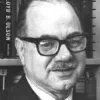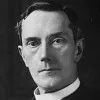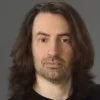It is the function of the university to preserve what is best in the heritage of the past, and pass this on to the future; what other institution can do this so magisterially? Its function is to inflame the minds of the young with passion to serve society, and to train them for that service; what other institution does this? Its function is to inspire all its acolytes with a sense of the beauty and the dignity of the search for truth, and to make sure that this great task will never be neglected. Its function is to stand aside from its own society and its own time, to exalt those values that are universal and timeless. Its function is to push outward the bounds of knowledge — knowledge of the physical universe, and of the nature and history of man, and thus enable man to confront and perhaps even to triumph over those problems which crowd about him so pitilessly. No other institution can do this.
Henry Steele Commager (1902-1998) American historian, writer, activist
“The University and the Community of Learning,” speech, Kent State University, Ohio (10 Apr 1971)
(Source)
Quotations about:
institution
Note not all quotations have been tagged, so Search may find additional quotes on this topic.
The Catholic Church is an institution I am bound to hold divine — but for unbelievers a proof of its divinity might be found in the fact that no merely human institution conducted with such knavish imbecility would have lasted a fortnight.
Hilaire Belloc (1870-1953) Franco-British writer, historian [Joseph Hilaire Pierre René Belloc]
Remark to William Temple
(Source)
Quoted in Robert Speaight, The Life of Hilaire Belloc (1957). Variant: "The Catholic Church is an institution I am bound to hold divine, but for unbelievers, here is proof of its divinity, that no merely human institution run with such knavish imbecility would have lasted a fortnight."
When theology erodes and organization crumbles, when the institutional framework of religion begins to break up, the search for a direct experience which people can feel to be religious facilitates the rise of cults.
Daniel Bell (1919-2011) American sociologist, writer, editor, academic
“Religion in the Sixties,” Social Research (Fall 1971)
(Source)
As a cause becomes more and more successful, the ideas of the people engaged in it are bound to change.
Margaret Sanger (1879-1966) American birth control activist, sex educator, nurse
Margaret Sanger: An Autobiography, ch. 32 (1938)
(Source)
The philosophical historian must admit that all the changes which the Catholic Church has undergone — its concessions to Pagan superstition, its secular power, its ruthless extirpation of rebels against its authority, its steadily growing centralisation and autocracy — were forced upon it in the struggle for existence. Those who wish that Church history had been different are wishing the impossible, or wishing that the Church had perished. But this argument is not valid as a defence of a divine institution. It is rather a merciless exposure of what happens, and must happen, to a great idea when it is enslaved by an institution of its own creation. The political organisation which has grown up round the idea ends by strangling it, and continues to fight for its own preservation by the methods which govern the policy of all other political organisations –force, fraud, and accommodation.
William Ralph Inge (1860-1954) English prelate [Dean Inge]
“Institutionalism and Mysticism” (1914), Outspoken Essays: First Series (1914)
(Source)
You see the thing you have to remember. When you get to be President, there are all those things, the honors, the twenty-one-gun salutes, all those things. You have to remember it isn’t for you. It’s for the Presidency, and you’ve got to keep yourself separate from that in your mind. If you can’t keep the two separate, yourself and the Presidency, you’re in all kinds of trouble.
Harry S Truman (1884-1972) US President (1945-1953)
In Merle Miller, Plain Speaking: An Oral Biography of Harry S. Truman, ch. 15 (1973)
(Source)








